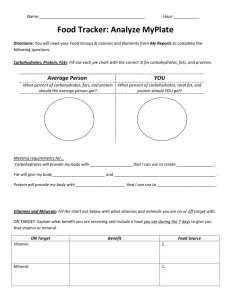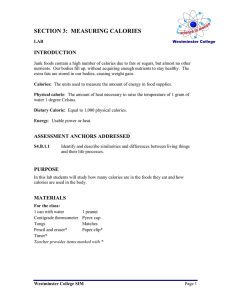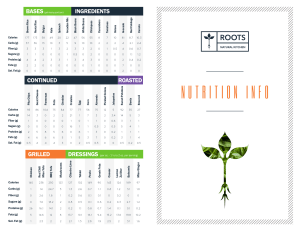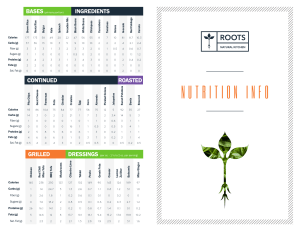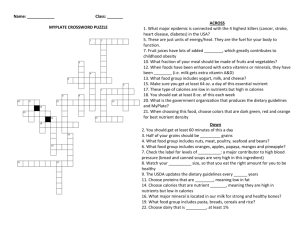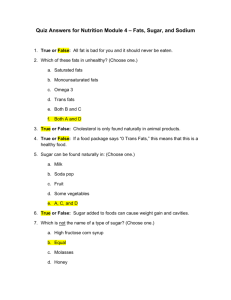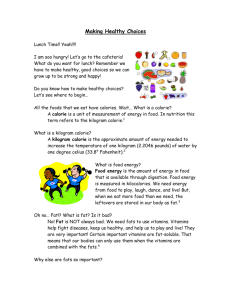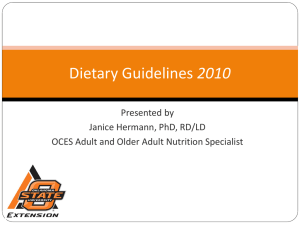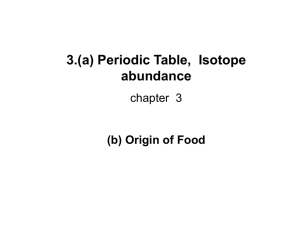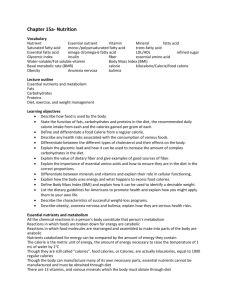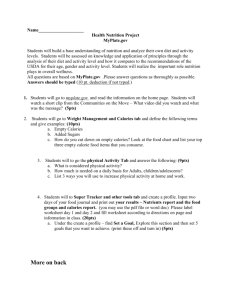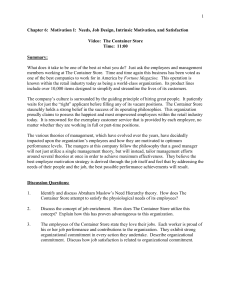Review Sheet
advertisement
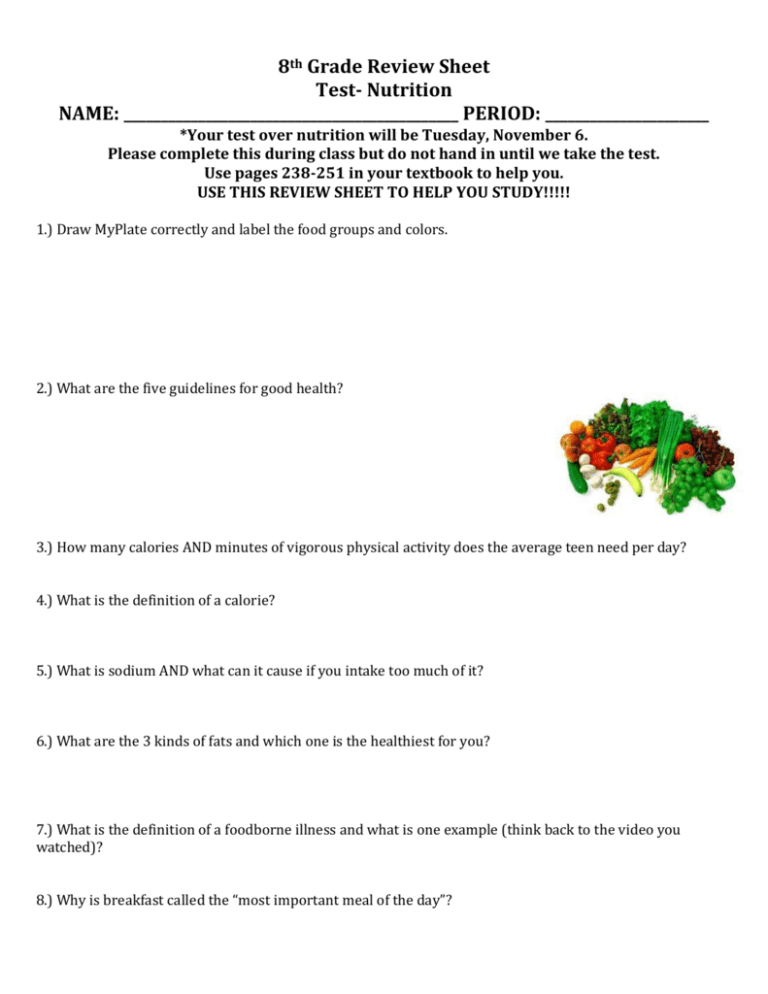
8th Grade Review Sheet Test- Nutrition NAME: _____________________________________________ PERIOD: ______________________ *Your test over nutrition will be Tuesday, November 6. Please complete this during class but do not hand in until we take the test. Use pages 238-251 in your textbook to help you. USE THIS REVIEW SHEET TO HELP YOU STUDY!!!!! 1.) Draw MyPlate correctly and label the food groups and colors. 2.) What are the five guidelines for good health? 3.) How many calories AND minutes of vigorous physical activity does the average teen need per day? 4.) What is the definition of a calorie? 5.) What is sodium AND what can it cause if you intake too much of it? 6.) What are the 3 kinds of fats and which one is the healthiest for you? 7.) What is the definition of a foodborne illness and what is one example (think back to the video you watched)? 8.) Why is breakfast called the “most important meal of the day”? 9.) Describe the three words that sum up MyPlate/MyPyramid and healthy meals? (Hint: page 248 in textbook) 10.) What is an empty-calorie food? 11.) What are three tips to remember when eating out at restaurants? You will also need to know how to read a food label and answer corresponding questions. Use the food label to answer the following questions. 12.) How many calories are there in this entire container? 13.) Does this product contain fats that are solid at room temperature? 14.) What is the % daily value of total fat in this entire container? 15.) If someone ate ½ cup of this, how many calories from fat did they consume? 16.) Does this product contain fiber? 17.) How many grams of food are in this container? 18.) Would you say this product is nutrient dense? Why or why not? 19.) If you are on a 2,000 calorie diet, how many milligrams of sodium is recommended for you per day? 20.) You are on a 2,000 calorie diet. If this is your first meal of the day and you eat the entire container, how many more milligrams of cholesterol can you have (today) if you want to stay below the recommended level? **Make sure you also study the following vocabulary words: nutrient density, carbohydrate, fiber, proteins, saturates fats, unsaturated fats, vitamins, minerals
